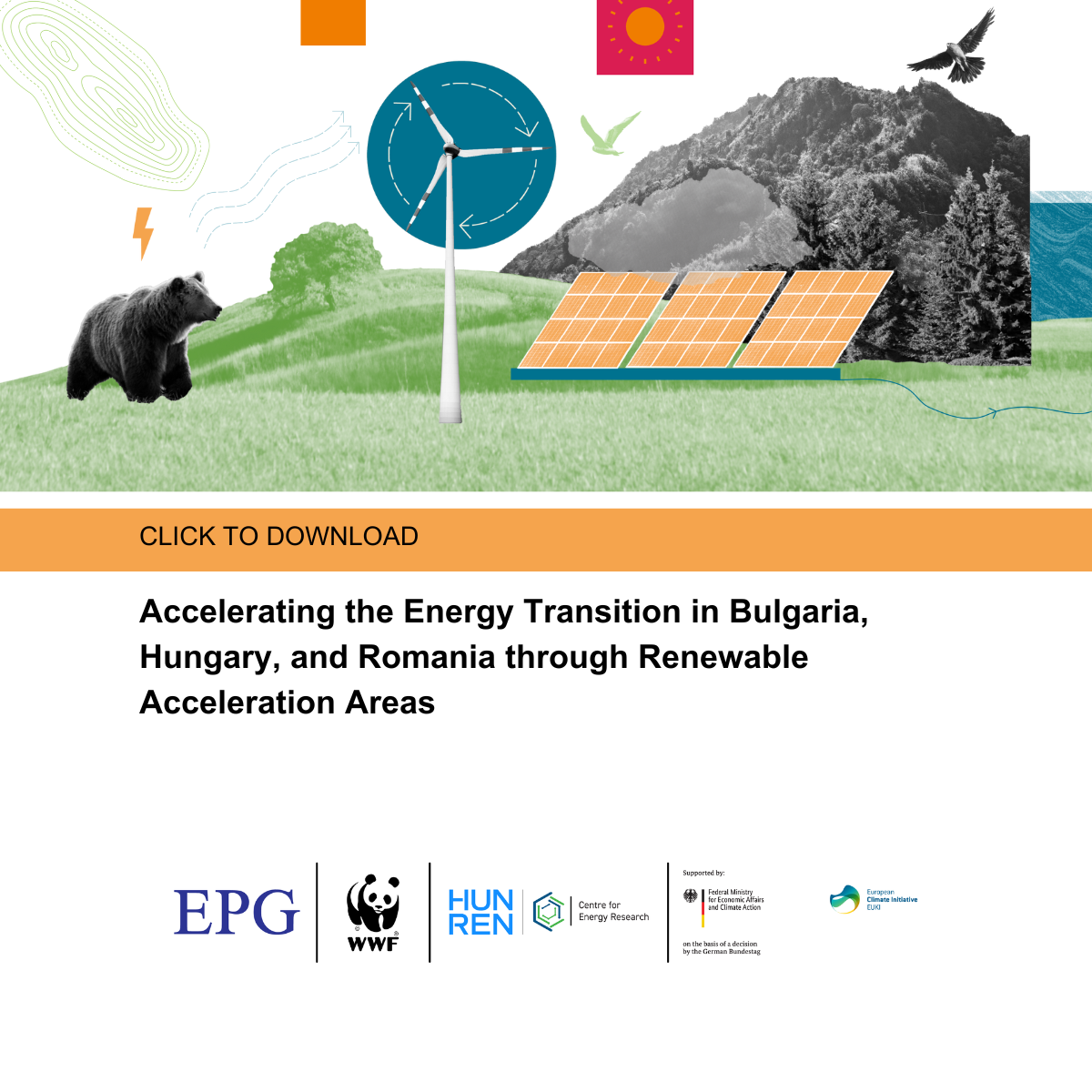Given Europe’s mounting climate ambitions and in the wake of the energy security crisis caused by Russia’s war on Ukraine, the European Union has adopted a new wave of legislative instruments, most notably the REPowerEU Plan and the revised Renewable Energy Directive (RED III). These frameworks task Member States with facilitating a swift deployment of renewable energy through spatial planning and the creation of Renewable Energy Acceleration Areas (RAAs).
This policy position provides a strategic analysis of progress, barriers, and recommendations for Bulgaria, Hungary, and Romania. It explains the challenges and makes recommendations for faster development of renewable energy in these countries.
The RENewLand project, launched in 2023, supports this assessment. By providing a science-based and stakeholder-driven methodology for spatial planning of renewables, RENewLand aims to bring support to these countries in fulfilling RED III requirements. However, despite technical tools and regional cooperation, implementation remains hindered by institutional fragmentation, data gaps, regulatory delays, and limited local engagement. This paper offers a comparative diagnosis and targeted policy guidance to address these shortcomings and accelerate progress toward the 2030 climate and energy goals.
RENewLand is part of the European Climate Initiative (EUKI) of the German Federal Ministry for Economic Affairs and Climate Action (BMWK). The opinions expressed in this study are entirely the responsibility of the author(s) and do not necessarily reflect the views of the Federal Ministry for Economic Affairs and Climate Action (BMWK).

Mihai Constantin, Senior Researcher
Mihai Constantin is a Senior Researcher at the Energy Policy Group, where he focuses on energy policies on topics such renewable energy and decarbonisation policies. As part of the Energy Systems Department he has contributed to a series of reports and policy papers addressing topics such as offshore wind development, solar energy potential, coal phase-out etc. At the same time, he engaged in advocacy activities with different stakeholders in order to promote the collaboration between public authorities, industry, and civil society on topics such as the development of offshore wind (through the Black Sea Renewable Coalition) or designating acceleration areas for renewable energy.
Mihai has a Master Degree in European Economics at Bucharest University of Economic Studies.
He has expertise on public policies in the fields of energy, climate change and economics. He also occupies a position of Senior Energy Expert at the World Bank. Before joining EPG, he worked for WWF Romania as Climate & Energy Manager and as Advisor on Public Policies in the Romanian Parliament.
Contact: mihai.constantin@epg-thinktank.org

